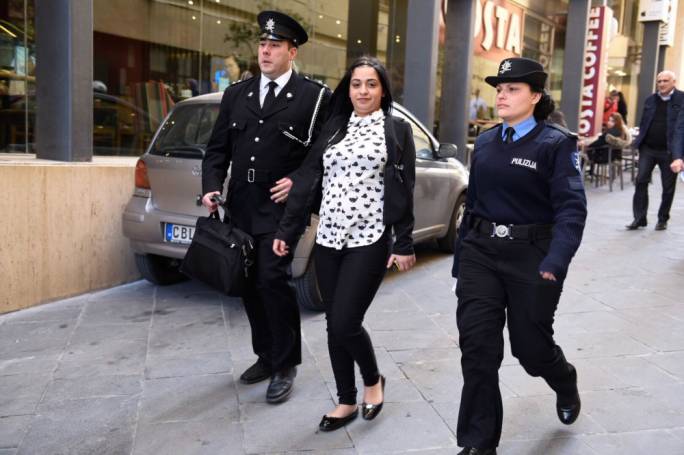People are sometimes conservative, impolite, they oftentimes insult you, though there are those who respect you and are glad that there are policewomen, says a woman member of the Kosovo Police. Many citizens, men in particular, in a way confirm the words of Nerxhivane Greiçevci, one of 1,230 women in uniform or civil staff at Kosovo Police (KP), that numbers a total of 7,800, who think that men “being physically stronger” may better perform the job of a police officer. Many girls, on the other hand, support policewomen saying that wearing the uniform and respecting the law is sufficient for them. They consider that gender does not predetermine success in any profession, this included. Being a woman is very challenging, while being a policewoman is an additional challenge, for you also have to face social prejudices, especially in a place such as Kosovo, where there no policewomen existed until following the 1999 war. This started changing with the establishment of the Kosovo Police, when women began applying for the job of an officer. They have already created the Women Association at Kosovo Police (WAKP), with the aim of empowerment, and inspiring all those girls who love this profession, to join them. Since then, many of them have reached higher positions in this profession. The criteria to get into the Police Force remain the same: regardless of gender, women as well as their male colleagues must pass theoretical, physical, and the medical test. After the training at the Kosovo Academy for Public Security (KAPS), in Vushtrri, they are supervised by more experienced police officers, prior to becoming independent police officers. Other positions come with time if one fulfils certain other criteria. However, in order to convince the society of their skills, and that they deserve the job of a police officer, Kosovo women had to work harder, given the environment where gender prejudice is still around.
“We do not want them to be merely women, but women who meet the criteria”, says colonel Taibe Canolli, who is the principal of Division for Personnel and Administration (DPA).
Canolli who also chairs the Women Association at Kosovo Police, says that this association, only of its kind in Southeast Europe, has two focuses: the empowerment of the women employees, and raising the awareness towards increasing the number of women in the Kosovo Police through equal gender competition. In order to help each other, WAKP organizes trainings for women so they can be informed on all the procedures they have to go through, thus be better prepared prior to the announcement for higher job positions. The number of boys and girls cadets at the KAPS also differs. There were no admissions during this year, but a total of 19,736 new cadets, 1.235 out of them women, applied a year before. Aiming at raising the number of women in WAKP and KAPS, WAKP decided to organize campaigns in secondary schools. Canolli considers that women officers in the Police are needed in order to have gender diversity, which is essential for such an institution, particularly in cases of domestic violence.
“The presence and the commitment of women helps Kosovo Police be one of the most trusted institutions”, says she.
The occupation of a police officer has no strict working hours, one may have to work overtime and also the night shift. Since this requires a lot of sacrifice, many women were forced to give up their jobs, according to the report on the position of women in Kosovo Police, published by Human Rights and Gender Equality office within the Kosovo Police, in 2010. Now, new moms within the Kosovo police force are relieved from the night shift until the child reaches a certain age.
Bulza Çapriqi








